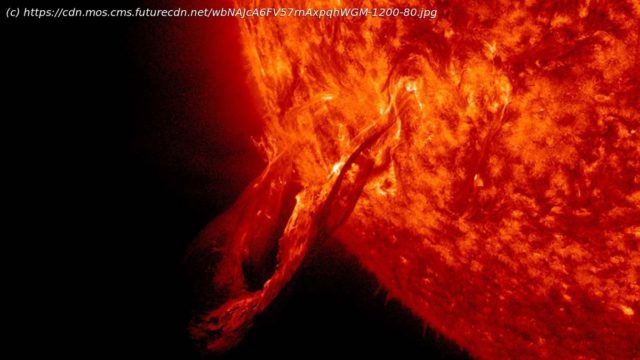This week’s science news was all about space, space flight, and the accelerating impact of climate change on just about everything.
Leading off the post-Labor Day science news this week were a couple of newly-announced launch dates for some historic space flights, as well as a new study that examines how a severe solar storm could trigger a months-long internet apocalypse. Inspiration4 set a tentative launch window for next week while the much-delayed James Webb Space Telescope is finally getting its own launch date for the end of the year. Speaking of space, a new study explored how an uncommon, but inevitable phenomenon caused by the sun could knock large regions or even entire continents off the internet entirely for weeks or even months, and how we need to prepare for the worst now. In the background though was climate change, and specifically how climate change is impacting our world faster than expected and in some surprising ways. A new study found evidence that some animals are growing bigger body parts in response to rising temperatures far faster than scientists realized – but still not fast enough to adapt to a changing climate. Then, there was the disturbing news that California’s Dixie Fire is threatening the Allen Telescope Array and forcing an evacuation of its scientists and staff, disrupting the facility’s important work in the search for extraterrestrial intelligence. All in all, a pretty full week, so let’s dig in. Scientists and engineers have been worrying about a major solar storm for a long while now, but a new study by an assistant professor at the University of California, Irvine, spells out some of the very specific risks to our internet infrastructure. A solar storm – a fairly regular eruption of highly magnetized particles from the sun – isn’t dangerous to humans (at least not directly), but it can wreak total havoc on electronics, knocking out entire power grids, and frying electronic devices in areas hit by these particles.
Домой
United States
USA — software 'Internet Apocalypse'? Sure but Inspiration4 is also go for launch in this...






